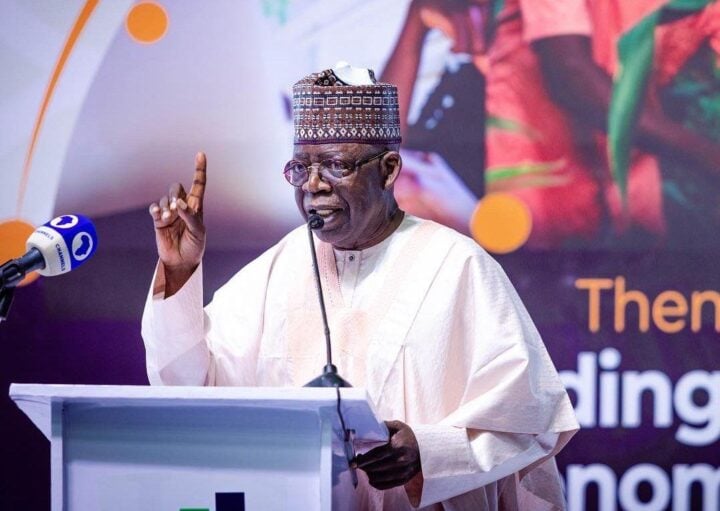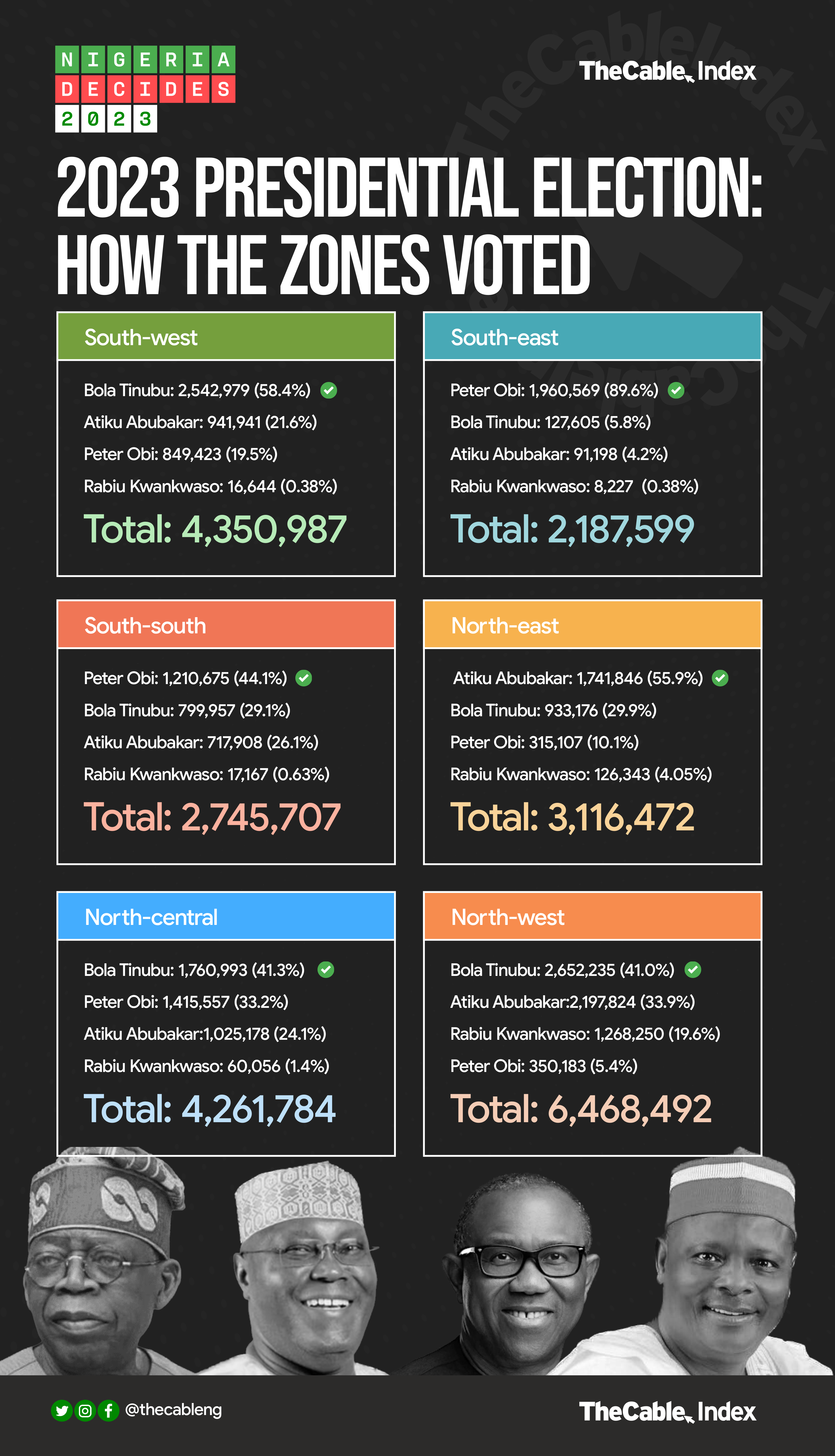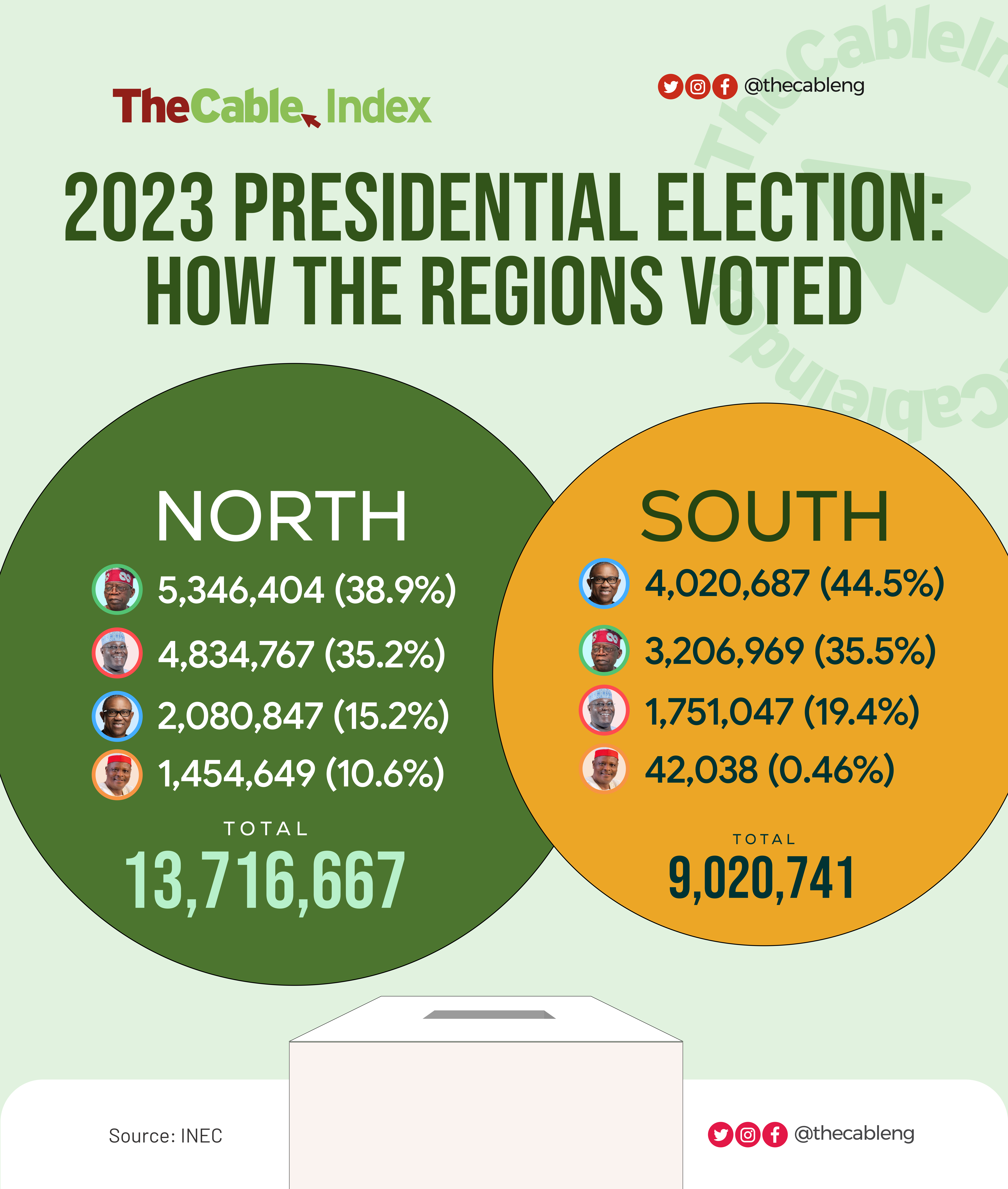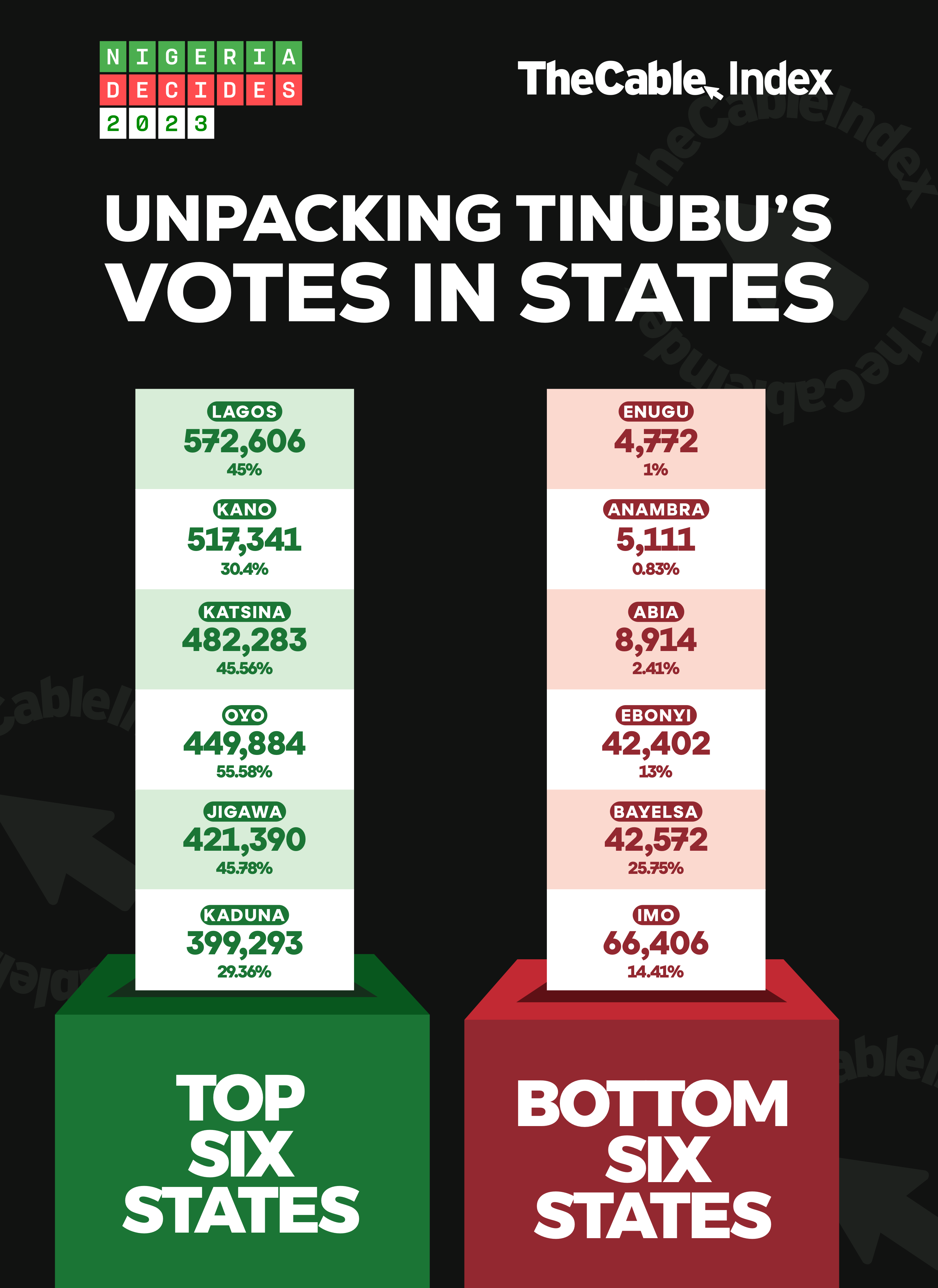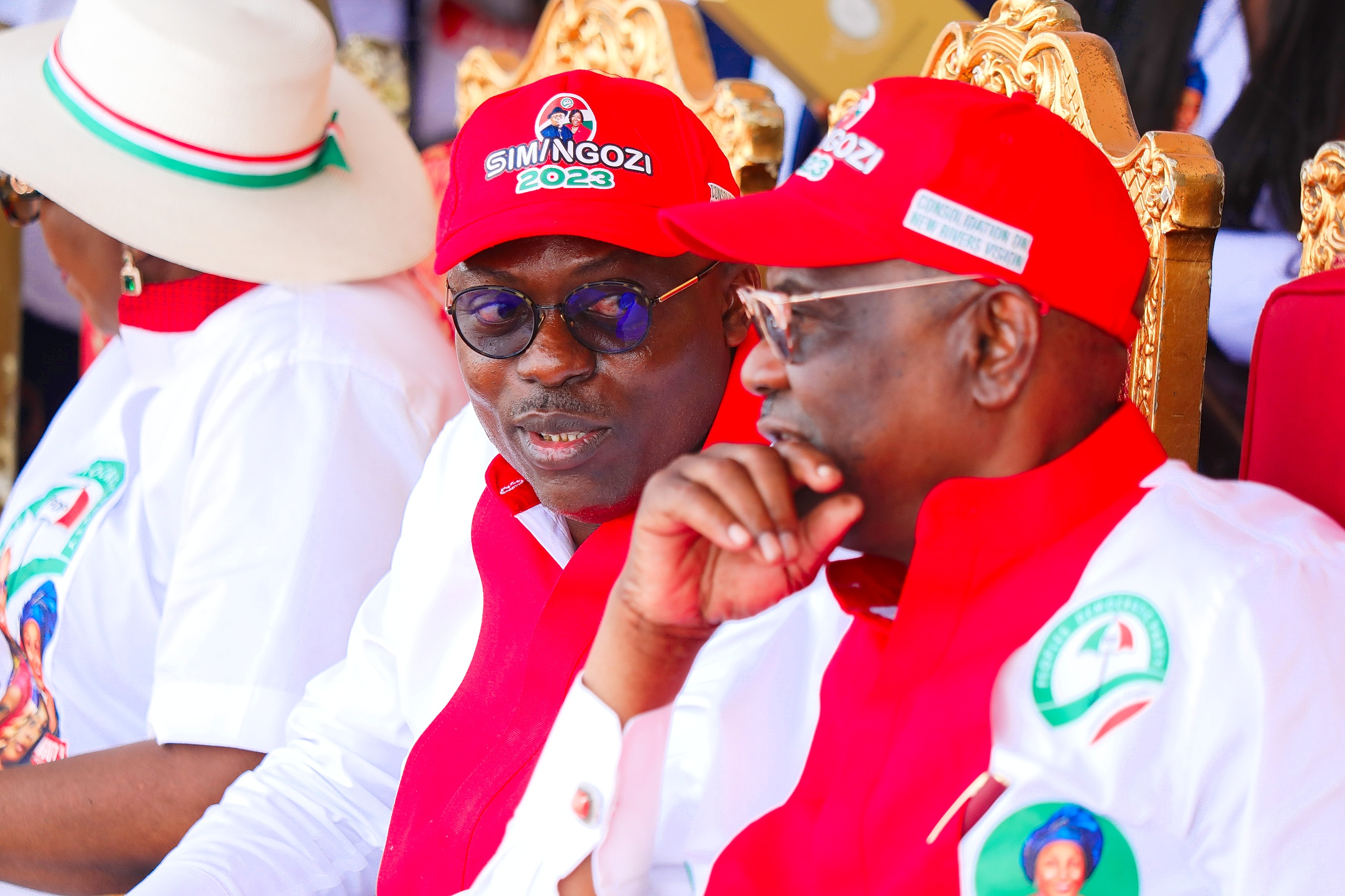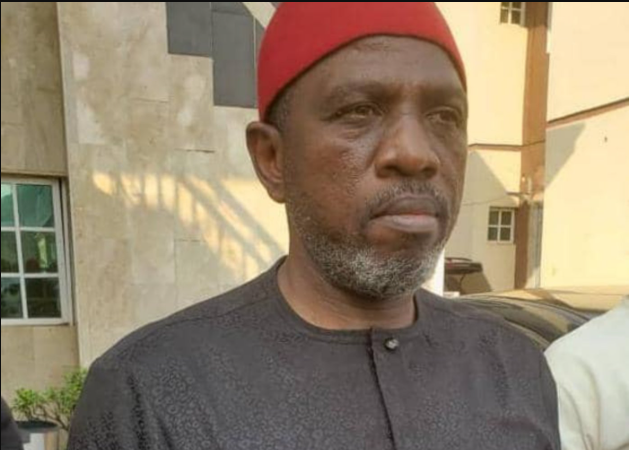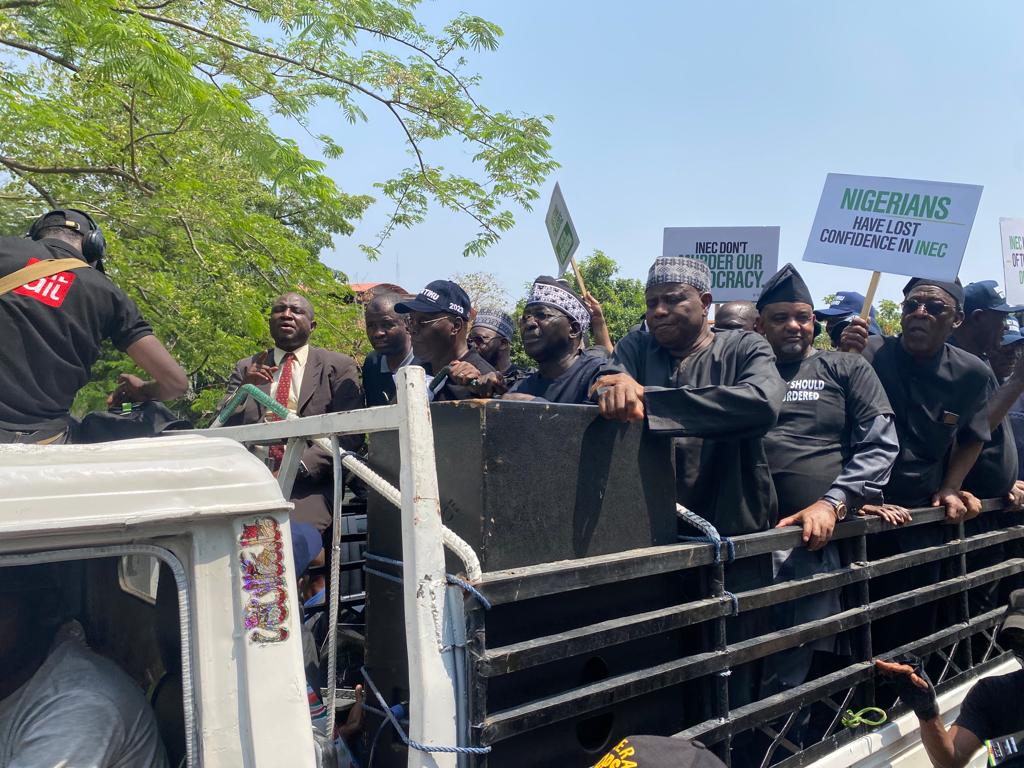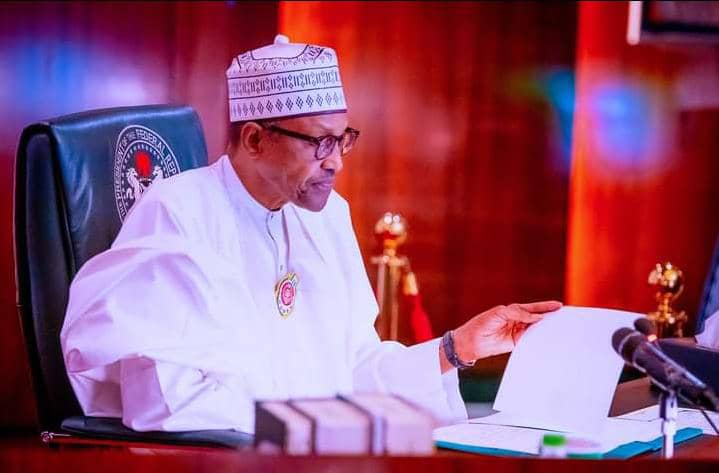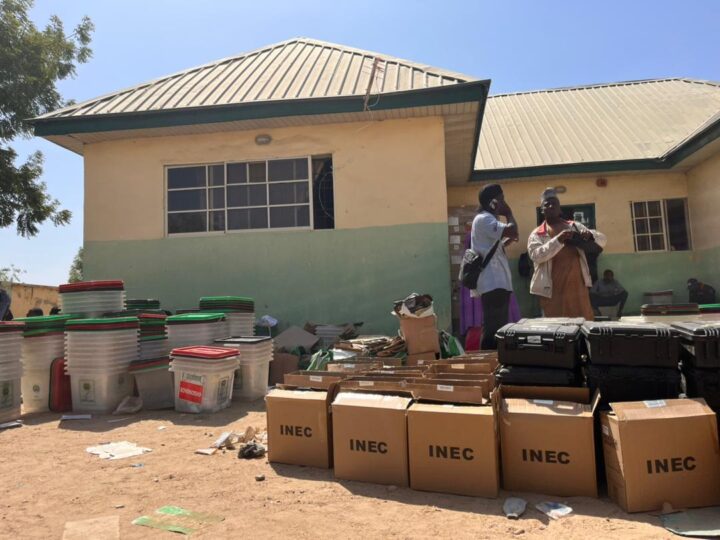By the time Bola Ahmed Tinubu, president-elect, dissects the data from the 2023 presidential election, he would have a fair idea of how he was able to overcome strong opposition to coast to victory.
For a start, he got more votes from the north-west — the largest voting geo-political grouping in the country — than from the south-west, his home zone.
Atiku Abubakar, a Fulani and candidate of the Peoples Democratic Party (PDP), was naturally expected to be the “homeboy” in the north in a country where ethnic and religious identities usually have a defining impact on voting patterns.
Before the February 25 election, there were permutations that Tinubu’s failure to pick a Fulani as running mate — Kashim Shettima is Kanuri from the north-east — was going to hurt his chances up north.
Advertisement
This permutation was not totally wrong: Atiku won four of the seven north-western states — Kaduna, Katsina, Kebbi and Sokoto. Tinubu, candidate of the All Progressives Congress (APC), picked two — Jigawa and Zamfara. Rabiu Musa Kwankwaso of the New Nigeria Peoples Party (NNPP) took his home state, Kano.
However, in raw numbers crunched by TheCable Index, Tinubu beat Atiku in the north-west, scoring 2,652,824 votes compared to his opponent’s 2,197,824. Not only were Atiku’s margins in some of the states narrow, Tinubu took a whopping half a million votes in Kano alone.
In fact, Tinubu got 30 percent of his total votes from the north-west. That is almost one-third.
Advertisement
LAGOS GAVE TINUBU HIGHEST VOTES
Tinubu got his second highest votes from his home zone, the south-west, but also got some embarrassment, conceding two goals as it were.
He lost Lagos, his state and place of comfort since 1999, to Labour Party’s Peter Obi. He also lost Osun to Atiku.
Despite the big blow, he still got his highest number of votes from Lagos state: 572,606. In a sense, every vote for LP was also a vote for APC because in times past, PDP might have benefitted and that would have increased Atiku’s tally.
Advertisement
The entire south-west gave Tinubu 2,542,979, second to the north-west.
There is a vital context — his second highest votes came from Kano where he also came second. The third was also from a state where he came second: Katsina.
Coming second in certain states is better than coming first in others. He was first in Ekiti state, for instance, but he got only 200,000 votes but he got more than double the figure in Kano to place second.
Advertisement
MISERABLE OUTING IN THE SOUTH-EAST
While his opponents picked states in the south-west, Tinubu got a miserable one percent of his total votes from the south-east, Obi’s home zone.
He got a total of 127,605 votes from the five states and did not score 25 percent in any of them.
Advertisement
South-east’s preference for Obi is unmissable: no other candidate met the 25 percent in any of the five states: Abia, Anambra, Ebonyi, Enugu and Imo.
The zone used to be won by the PDP. This was the first election since 1999 that the PDP did not win the zone.
Advertisement
Tinubu got his lowest votes nationwide from Enugu state — 4,772, followed by Anambra (5,111), Abia (8,914), Ebonyi (42,402), Bayelsa (42,572) and Imo (66,406).
Although Bayelsa gave him only 42,572 votes, he met the 25 percent requirement there. Meanwhile, Tinubu came second in Ebonyi and Imo, two states controlled by the APC.
Advertisement
FIRST OR SECOND IN ALL ZONES
Remarkably, Tinubu came either first or second in all the geopolitical zones.
He won only one zone in the south — the south-west — but came second in the south-south and south-east. South-south’s 799,957 votes for Tinubu contributed nine percent to his total haul.
In the north, Tinubu led in the north-west and north-central. Some pundits had tipped Obi to win the north-central because of the Christians who are thought to be opposed to APC’s Muslim-Muslim ticket.
Tinubu picked four of the six north-central states — Kwara, Kogi, Niger and Benue — leaving Obi with two: Plateau and Nasarawa. Atiku did not win any state in the zone, unlike in 2019 when he got Plateau and Benue.
Atiku won the north-east, his home zone, claiming all but Borno, even leading PDP to victory in Yobe for what should be the first time since 1999. Tinubu won only Borno, where his running mate hails from.
Also noteworthy is that Tinubu came first in 12 states and second in 19 states. He came third only in five states and the Federal Capital Territory (FCT).
Although Atiku also came first in 12 states, he came second in only 15 states and third in nine states plus the FCT.
Tinubu got 25 percent in 30 states, while Atiku did in 21 states and FCT and Obi managed it in only 16 plus FCT.
The constitution requires the overall winner to have scored at 25 percent in at least 24 states and FCT, and Tinubu’s failure to secure 25 percent in the federal capital is likely to be a focus of the election petition by his opponents.
NORTH MADE TINUBU PRESIDENT, SORT OF
The major calculation in Atiku’s camp was that being the strongest northerner on the ballot, he was going to sweep the northern states to make up for the loss of the south-east and south-south to Obi.
It did not seem to have worked.
Although Atiku won nine of the 19 states, his total haul of 4.8 million votes fell short of Tinubu’s 5.3 million. That means Tinubu’s seven states gave him more votes.
Obi scored four million to lead in the south, claiming nine states while Tinubu’s 3.2 million votes from five states placed him on the second slot. Atiku won in three states, netting 1.75 million votes.
If the majority of voters in the north had not backed Tinubu and instead supported Atiku, the PDP candidate would have won the highest votes without the required 25 percent spread.
Why did they choose Tinubu above Atiku? One guess would be that the battle was mainly between APC and PDP. Most of the APC voters might have stuck to their party. It is also possible that APC’s Muslim/Muslim ticket might have diluted support for the homeboy, while the Labour Party appeared to have taken a lot of PDP’s Christian voters in the north.
Editor’s note: INEC is yet to release its final figures for the presidential election. This article was written based on a mix of the results announced at the national collation centre and at the state level.
Add a comment
